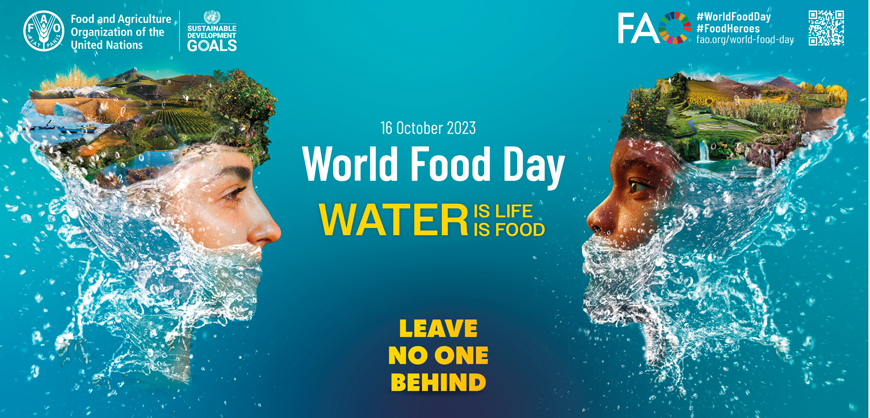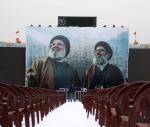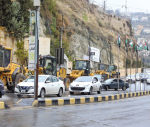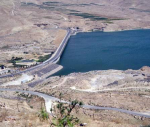You are here
FAO, IHE organise training WaPOR, QGIS software for water productivity
By JT - Feb 12,2024 - Last updated at Feb 12,2024
AMMAN — The Food and Agricultural Organisation (FAO) of the United Nations, in coordination with the IHE Delft Institute for Water Education, co-organised a 4-day regional training at the Dead Sea, Jordan, centred on the use of WaPOR data and Quantum GIS (QGIS) open-source software for water productivity and irrigation performance assessment.
The training is inscribed in the second phase of the WaPOR project that aims to assist partner countries in developing their capacity to monitor and improve water and land productivity in agriculture, using the WaPOR database, which is based on remote sensing and open access.
The training was attended by 40 participants from Jordan, Palestine, Iraq and Egypt, representing ministries and institutes having a mandate related to water and agriculture in these WaPOR partner countries. It had the objective of familiarising the participants with applications of remote sensing and geoinformatics in agriculture, WaPOR data, the open-source QGIS software and the bases of geospatial analysis, water productivity and management’s concepts as well as irrigation performance assessments. Interpretation of analysis results was a key focus of the sessions, which were based on hands-on exercises using data and case studies from the region.
The training was kicked off by a speech of the FAO Representative in Jordan, Nabil Assaf, who emphasised the need for countries in the region to plan their water resources in a strategic manner “to ensure optimal and sustainable use of water and to ensure food security”. He also mentioned the issue of data scarcity, which hinders these planning efforts, and applauded WaPOR for “helping to fill the data gap and to monitor water productivity and water use efficiency for proper decision making”.
Jacob Waslander, Envoy to the Middle East and North Africa for Water, Energy and Food from the Embassy of the Kingdom of The Netherlands, main donor of the FAO WaPOR project, also intervened; he mentioned the climate-change-induced severe water stress that countries in the region are facing, which makes the planning’s needs voiced by the FAO Representative even more urgent. He added that countries present in the workshop “need to be prepared for the future and come up with solutions to deal with the limited water resources”.
Thaer Momani, the secretary-general assistant for technical affairs at the Ministry of Water and Irrigation of Jordan stressed the importance and the benefits of trainings such as this regional one, that empowers the technical staff of the ministries to monitor water situation and identify measures for sustainable water management.
WaPORis FAO’s portal to monitor “Water Productivity through Open access of Remotely” sensed derived data and is the backbone of the WaPOR project which, currently in its second phase, works with 13 partner countries to support the use of the data according to their own specific contexts and needs.
Related Articles
AMMAN — The National Agricultural Research Centre (NARC) and the Office of the Food and Agriculture Organisation of the United Nations (FAO)
AMMAN — World Food Day is celebrated globally on October 16 to mark the founding date of the Food and Agriculture Organization of the United
AMMAN — The Food and Agriculture Organisation (FAO) team on Wednesday met with the Water User Association in Al Ghadeer Al Abyad Dam area in

















